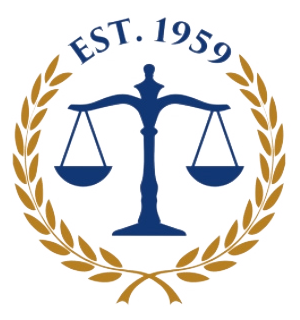When it comes to lawsuits, pretrial motions are able to resolve many questions that arise from the case. A motion is a request that is filed by the lawyer asking the court to rule on a particular matter. There are two general types of motions: first is the dispositive motion, in which the court’s decision terminates the litigation process and even ends the dispute before the trial starts. Dispositive motions fit within the broader framework of civil procedure, which governs the rules and standards for handling civil cases. The second type is the non-dispositive motion, where the court ruling responds to an incidental question that comes up during litigation.
These motions are also relevant in federal courts, where they play a crucial role in the resolution of civil cases.
In this article, we’ll be looking at dispositive motions that can end trials before they start.
Motion to Dismiss
The Motion to Dismiss is sometimes filed at the very early stages of the litigation process before Discovery of Information starts. This is often filed by the defendant and his or her side when they believe that the case or complaint is legally invalid. These motions can be filed in both state and federal courts and are often based on the following:
- Lack of subject matter jurisdiction. This is used when the court has no power to rule or decide over the controversy. As an example, the defendant files a motion to dismiss because the case should be handled by a probate court and not a civil court.
- Lack of personal jurisdiction. This is used when the court has no power to make rulings that affect the defendant personally. As an example, a person who lives in Texas is involved in an accident in California and is then being sued in New York (with which he has minimum contact), and then the court in New York will generally have no jurisdiction over the defendant.
- Improper venue. The venue is the location of the court. State laws determine the place within the state where a person can be sued. However, note that the usual resolution in this type of concern is not to dismiss the case but to transfer it to a different and more proper venue.
- Insufficiency of process. A case may be dismissed if it can be proven that there was a technical error in the summons, or if the process was not followed properly.
Federal law can also provide grounds for a motion to dismiss, such as failure to state a claim under Rule 12(b)(6).
The opposing party may respond to a motion to dismiss by filing an opposition and presenting arguments and evidence to counter the motion.
Summary Judgment Motion
There are cases when key facts are not questioned and require that judgment or interpretation be made for one of the parties. Sometimes, only part of the case can be resolved through partial summary judgment when some facts or issues are not in dispute, and some remain in doubt. This is called summary judgment because the case is summarily judged before the trial even starts. Here, a person of authority – often a judge or a jury will decide what the acceptable facts are. If the facts are not questioned or disputed, then there is no more need to try the case. Such a motion can be granted when the evidence presented shows that there is no genuine dispute as to any material fact, and the movant is entitled to judgment as a matter of law.
Motion for Default Judgment
In the event that the defendant fails to respond to the complaint or to file for a motion to dismiss within the time period specified in the summons, then he or she will be in default. When this happens, the plaintiff can ask the clerk or trial court to take note of this in the file, in a procedure that is called the entry of default. This is a serious situation for the defendant as this usually means that he or she has given up the right to contest his or her responsibility to the plaintiff.
Default judgments can significantly impact the right to a jury trial, as the defendant loses the opportunity to have the case heard and decided by a jury.
If you are looking for a personal injury lawyer who can help you build or look into your case, contact us today at (512) 454-3751 to schedule a consultation with our legal professionals. Missing the trial date can lead to a default judgment, further complicating the defendant’s position.


